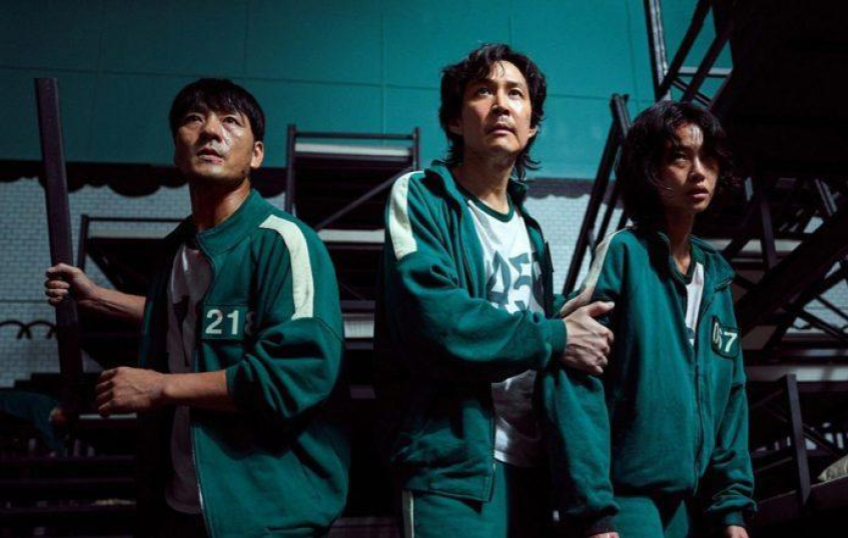Fair warning, this review will contain spoilers.
Netflix quietly released “Squid Game” last month, reaching a surprising 111 million viewers. The show’s massive success has spurred rumors of a potential second season, and Netflix is reportedly looking into making a video game based on the property.
The Korean drama series has jumped into the realm of being a “water cooler talk” show. It is all everyone is talking about right now, garnering the same attention that shows “Game of Thrones” and “The Walking Dead” once did.
That class of popularity begs the question: does “Squid Game” live up to the hype?
The short answer is yes, it does. The series has everything from compelling characters to nail-biting sequences to twist after twist that made me select “next episode” as fast as I could.
The show is centered on a competition of various childrens’ games, where the price for losing is death. Over 400 players, each in varying states of financial distress, participate in the hopes of winning the grand prize of 45.6 billion in Korean won (roughly $38 million in United States dollars).
The show’s biggest strength is its cast of characters. Naturally, in a show like this, the audience follows the players as they forge alliances to advance and inevitably betray one another in the name of money.
The writing for each character is so well done that when some of them start to fall, their deaths leave a lasting impact on both the in-universe characters and the audience. We are feeling grief as the survivors push through the games, leaving the fallen behind.
Our main protagonist is Seong Gi-Hun (Lee Jung-Jae), a divorced father deep in gambling debt. When he arrives at the games, he finds his childhood friend Cho Sang-Woo (Park Hae-Soo) is participating, along with a collection of underdogs. Together, they form the alliance viewers can root for when the bully characters start causing trouble.
Death is a constant throughout the show. With 456 contestants, players must start being whittled down. At first, it’s the background cast starting to die off, which the writers even managed to make impactful, something that is not always felt when extras die in American shows or movies.
Each new game ramps up the tension to a new level. Even watching players cut a shape out of a dalgona cookie is nerve-wracking. When the players start dropping, each gunshot felt like time was ticking down for the main cast, ramping up the pressure that continued into the following games.
Then the time for some of the main players to die comes.
In the second episode, the players decide to vote to leave the games and return to their normal lives. Only then do they realize why they need to return to fight for the 45.6 billion won.
Gi-Hun’s mother is sick, and he still has debts. Sang-Woo is wanted for the embezzlement of millions. The quiet and reserved Kang Sae-byeok (HoYeun Jung) has to care for her younger brother. The lovably innocent Abdul Ali (Anupam Tripathi) lives in poverty with his wife and son. Everyone has a reason to fight, and it makes their actions understandable and the latter three’s deaths more tragic.
All the death and sacrifice were in service of the writer’s message of wealth, greed and what those things do to people. “Squid Game” is not violent for the sake of violence. It has a point.
That point rings no truer than when the wealthy viewers known as “VIPs” arrive at the game site, taking bets on which of the poor contestants is going to die next. They pay no attention to the fact they are toying with people’s lives and the size of their bank accounts means they couldn’t care less.
While the concept of “rich people gamble with people’s lives for entertainment” is something other forms of media have explored, “Squid Game” is still as riveting as people online say. My hope is that it allows for people to experience more foreign media because there are some real gems out there.
Its biting commentary on capitalism rings true, and the overall product is elevated even higher through its well-written characters thrust into a winding and haunting story.
cbskbf@umsystem.edu








